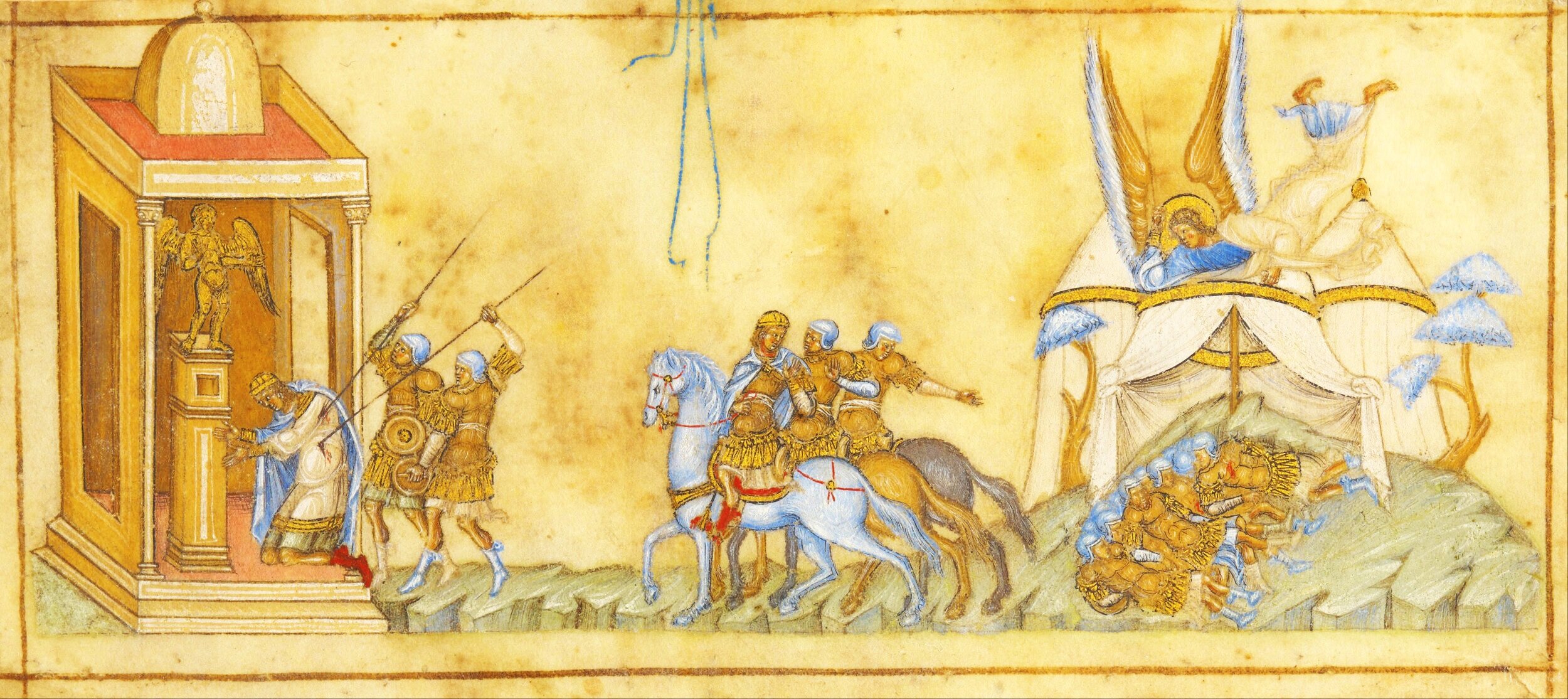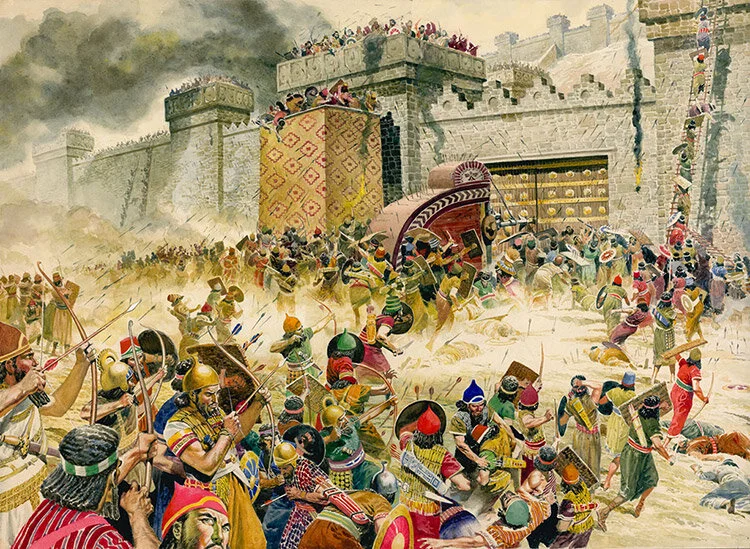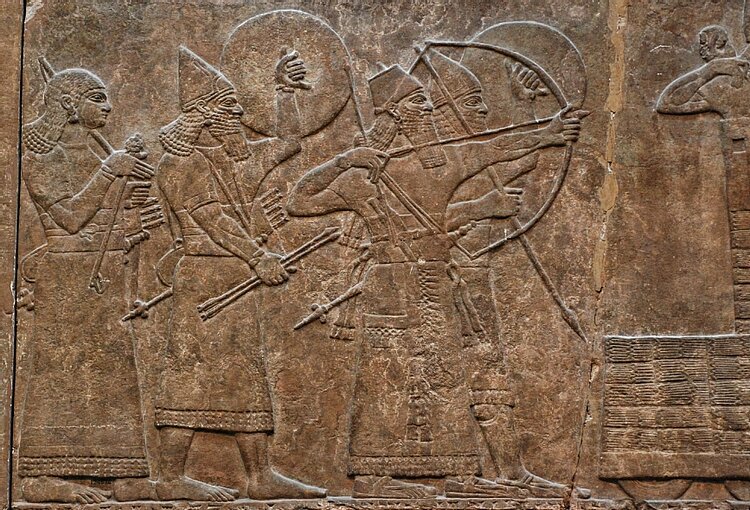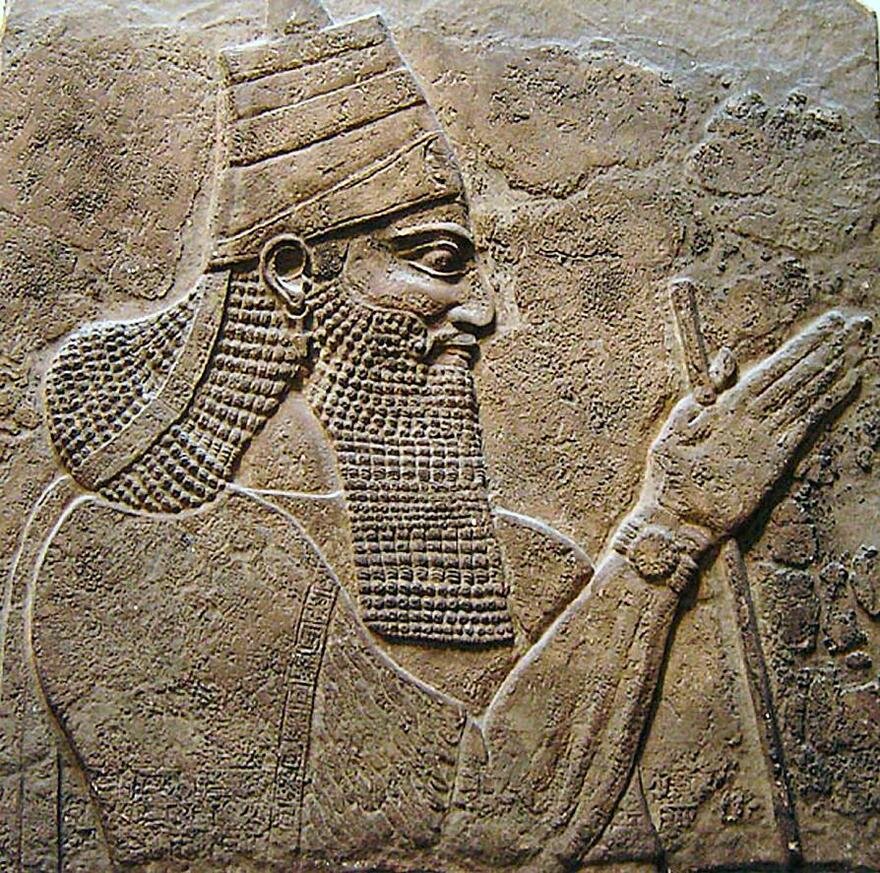The Old Testament says that good King Hezekiah fended off the Assyrian army at Jerusalem, but his triumph was undone by bad King Manasseh. Archaeology proves otherwise.
Instead of scurrying home in defeat, did the Assyrians actually successfully conquer Jerusalem?
It just doesn’t seem fair that the fate of an entire kingdom would be dependent upon its king’s behavior — namely whether or not he worshiped other gods besides YHWH (Yahweh).
But that’s exactly what happens throughout the Old Testament. In general, the kingdom of Judah fared much better than its northern neighbor, Israel, which was ultimately laid to waste by Assyria.
“A contemporary record explains how Sennacherib laid siege to city after city throughout Judah, conquering them with ramps and battering rams.
He captured King Hezekiah and kept him “like a bird in a cage.” ”
The Bible tells us that King Hezekiah defeated the Assyrians with divine intervention. But archaeological evidence from the time suggests otherwise.
Hezekiah and the Miraculous Defeat of Assyria
With King Sargon II of Assyria dead since 705 BCE, Hezekiah (who reigned from 727-698 BCE) decided it was time to rebel, entering a coalition backed by Egypt. Of course, that prompted the new ruler of Assyria, Sennacherib, to gather his formidable army and march upon Judah.
The book of 2 Kings in the Bible tells the story of a miraculous defeat: The Angel of the Lord went forth, slaying 185,000 soldiers in the Assyrian camp. Needless to say, that frightened King Sennacherib enough that he scurried home — only to be murdered by two of his sons.
After his supposed defeat, the Assyrian ruler Sennacherib was killed by two of his own sons.
For some reason, Hezekiah’s son and successor, Manasseh (698-642 BCE), isn’t impressed enough with the power of Yahweh to insist upon sole worship of the deity. He makes a theological about-face, and even goes so far as to burn his son as an offering to one of the local gods, practice soothsaying and augury, and deal with mediums and wizards. (Sounds like fun to me — except for the human sacrifice bit.)
The evil King Manasseh had to repent for his sins in the Old Testament — but historical evidence doesn’t jibe with the Bible’s version of events.
Archaeology Tells a Different Story
Were the Assyrians defeated during their invasion of Judah? If the story in the Old Testament seems almost too fantastical to believe, that’s because it probably is. Archaeological evidence — granted, some from the Assyrian point of view — tells another version.
A contemporary record explains how Sennacherib laid siege to city after city throughout Judah, conquering them with ramps and battering rams. He captured King Hezekiah and kept him prisoner in his palace, “like a bird in a cage,” while the Assyrian army plundered his land.
So who’s telling the truth? The authors of the Bible or the Assyrian historians?
Bad news for biblical literalists: “The devastation of the Judahite cities can be seen in almost every mound excavated in the Judean hinterland,” write Israel Finkelstein and Neil Asher Silberman in The Bible Unearthed: Archaeology’s New Vision of Ancient Israel and the Origin of Its Sacred Texts.
Sennacherib, the ruler of Assyria at the time of Hezekiah and Manasseh
Manasseh and Assyria
Perhaps Manasseh is remembered so poorly because he actually became one of Assyria’s most loyal vassal states — despite the prosperity it brought.
“[A] seventh century text reporting tribute given by south Levantine states to the Assyrian king indicates that Judah’s tribute was considerably smaller than that paid by the neighboring, poorer Assyrian vassals Ammon and Moab,” write Finkelstein and Silverman.
Manasseh was said to be captured and marched to Assyria in chains — including one through his nose. But a contemporary record says it was Hezekiah who was captured and kept “like a bird in a cage.”
In another document, Manasseh is reported as giving gifts to the Assyrian king and helping him conquer Egypt. And while this certainly would have displeased anyone who wanted a free, unified kingdom of Israel, Manasseh’s long reign of 55 years was a peaceful time for Judah.
The Defeat of Sennacherib by Peter Paul Rubens, 17th century
“For all the Bible’s talk of Hezekiah’s piety and YHWH’s saving intervention, Assyria was the only victor,” Finkelstein and Silverman write. “Sennacherib fully achieved his goals: he broke the resistance of Judah and subjugated it. Hezekiah had inherited a prosperous state, and Sennacherib destroyed it.”
The author of the books of Kings seems to have hoped that by the time he wrote his version of the account, people would have forgotten what actually had happened. For centuries, this is what people have believed — until archeological evidence has come along to prove them wrong. –Wally











































